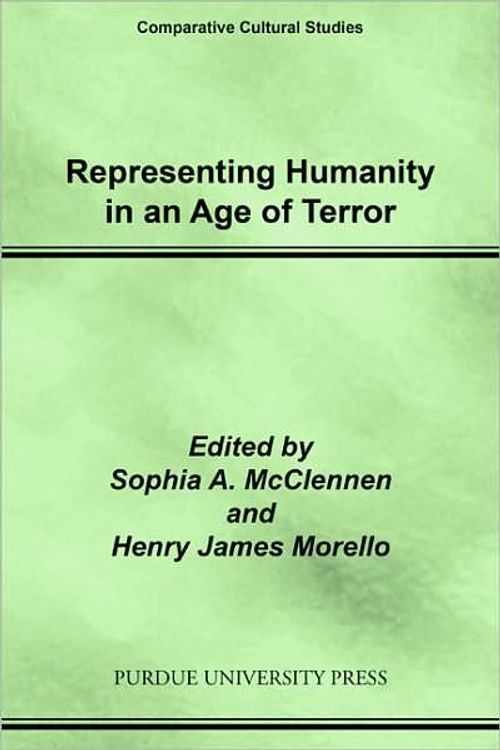
Written in the context of critical dialogues about the war on terror and the global crisis in human rights violations, authors of the collected volume Representing Humanity in an Age of Terror, edited by Sophia A. McClennen and Henry James Morello, ask a series of questions: What definitions of humanity account for the persistence of human rights violations? How do we define terror and how do we understand the ways that terror affects the representation of those that both suffer and profit from it? Why is it that the representation of terror often depends on a distorted (for example, racist, fascist, xenophobic, essentialist, eliminationist) representation of human beings? And, most importantly, can representation, especially forms of art, rescue humanity from the forces of terror or does it run the risk of making it possible? The authors of the volume’s articles discuss aspects of terror with regard to human rights events across the globe, but especially in the United States, Latin America, and Europe. Their discussion and reflection demonstrate that the need to question continuously and to engage in permanent critique does not contradict the need to seek answers, to advocate social change, and to intervene critically. With contributions by scholars, activists, and artists, the articles collected here offer strategies for intervening critically in debates about the connections between terror and human rights as they are taking place across contemporary society. The work presented in the volume is intended for scholars, as well as undergraduate and graduate students in fields of the humanities and social sciences including political science, sociology, history, literary study, cultural studies, and cultural anthropology.
“The article move deftly between high theory and practical politics, guiding the reader through an impressive range of material (poetry, prose, music, film, and photography) with broad historical scope (the French Revolution, post World War II decolonization, the ‘Global War on Terror’)—all the while retaining a strong sense of cohesion and unity of purpose. This is a spirited collection, simultaneously provocative and rigorous. It is not only an urgent appeal for engaged public scholarship, but also a first-rate example of it.”— James Dawes, Macalester College, author of That the World May Know
“Some suggest that comparative literature is a dead discipline. This book proves them wrong by showing the engaged responsiveness of post-contemporary comparativism to current social and political problems. Rather than fashioning itself as an alibi for Western imperialism, the volume reveals the emerging role of comparative literature and comparative cultural studies as an active agent in progressive social understanding and change—particularly in an ‘age of terror.’”— Jeffrey R. Di Leo, University of Houston-Victoria, author of Academe Degree Zero: Reconsidering the Politics of Higher Education